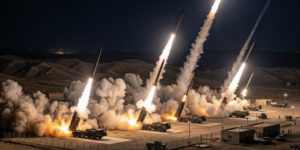Following reports of people developing blood clots shortly after receiving a dose of AstraZeneca’s COVID-19 vaccine, Germany, France, Italy and Spain have joined a growing list of countries to suspend use of the drug, pending a full investigation. While the decision to pause the rollout of the vaccine is highly disputed – the World Health Organization and the European Medicines Agency have all advised against it – there’s no argument this couldn’t have happened at a worse time.
Even before the suspension, Europe’s vaccination rollout was lagging behind inoculation campaigns in the UK and the United States, with the EU’s joint procurement strategy widely criticized for being too slow and bureaucratic at a time when speed was of the essence.
Prior to the latest developments, Europe’s vaccine rollout had just been picking up pace, mainly thanks to the approval of AstraZeneca’s vaccine. According to data published by the European Centre for Disease Prevention, AstraZeneca accounted for 3 in 10 doses administered across the European Economic Area’s 30 members states in the week ended March 7. Taking into account that several countries only approved the drug for people over 65 that week, it can be assumed that the vaccine would have played an even bigger role going forward.
Regardless of whether and when the vaccine’s rollout will eventually resume, the damage to its reputation is already massive. Having been regarded as inferior to other vaccines by parts of the European public prior to the latest safety concerns, rebuilding public trust in the AstraZeneca vaccine might prove challenging, which is why a full investigation of the blood clot incidents is now without alternative.
source statista
 You will find more infographics at Statista
You will find more infographics at Statista
Ask me anything
Explore related questions





